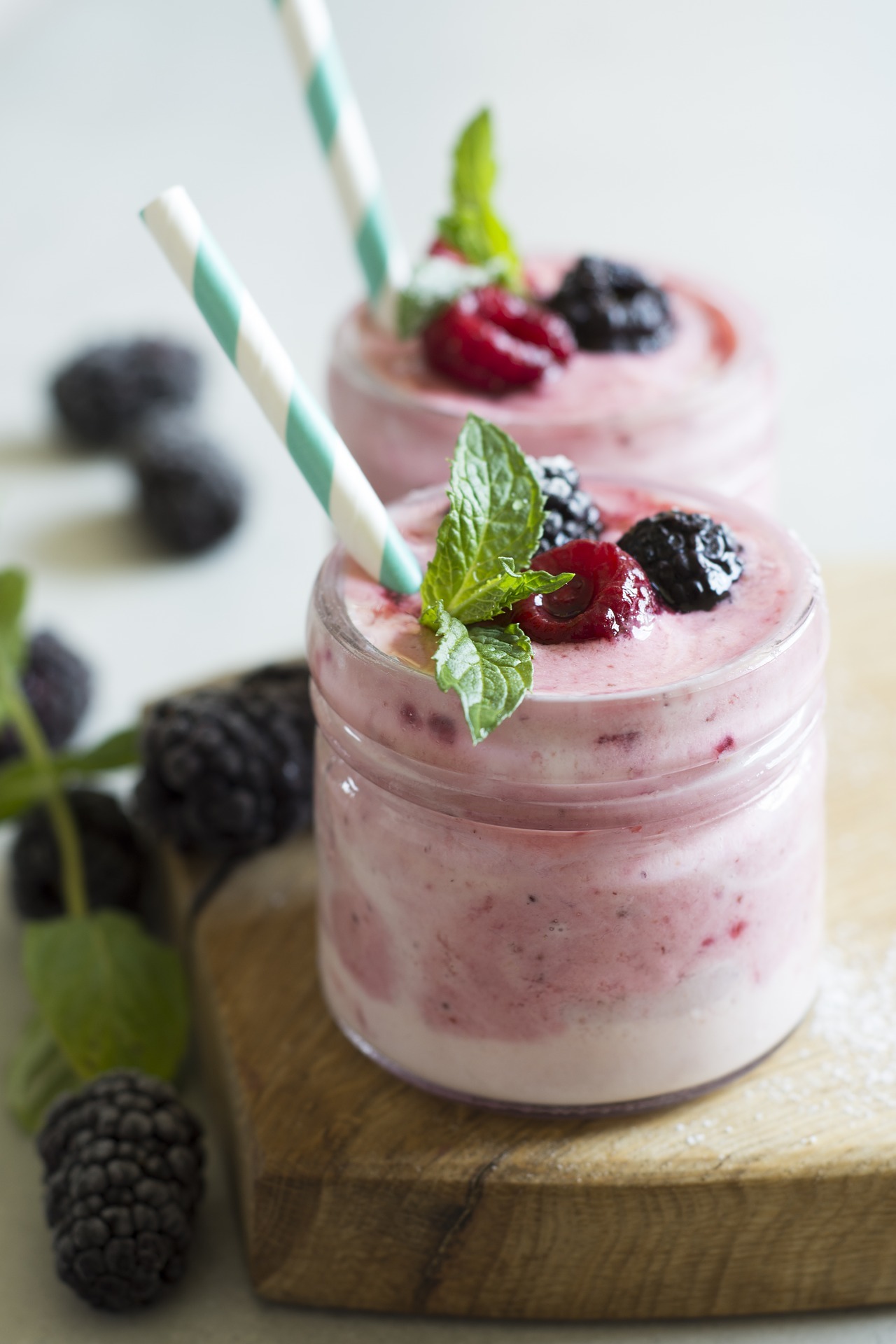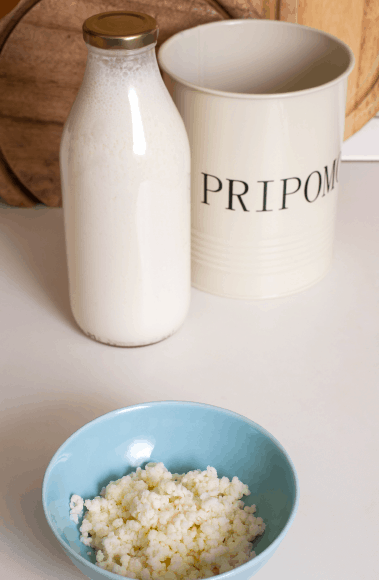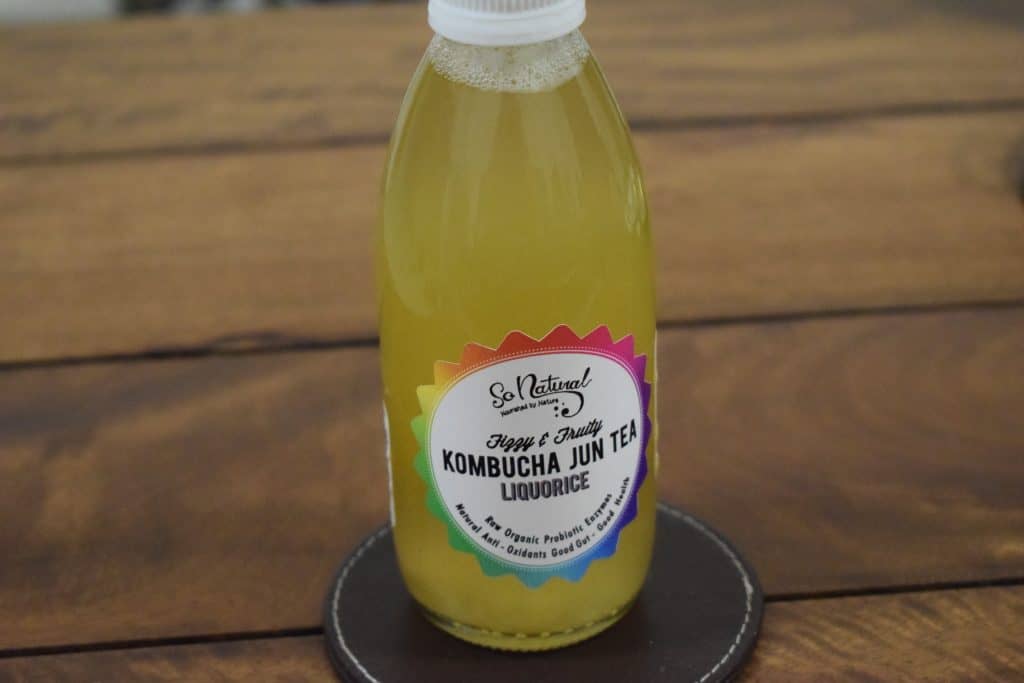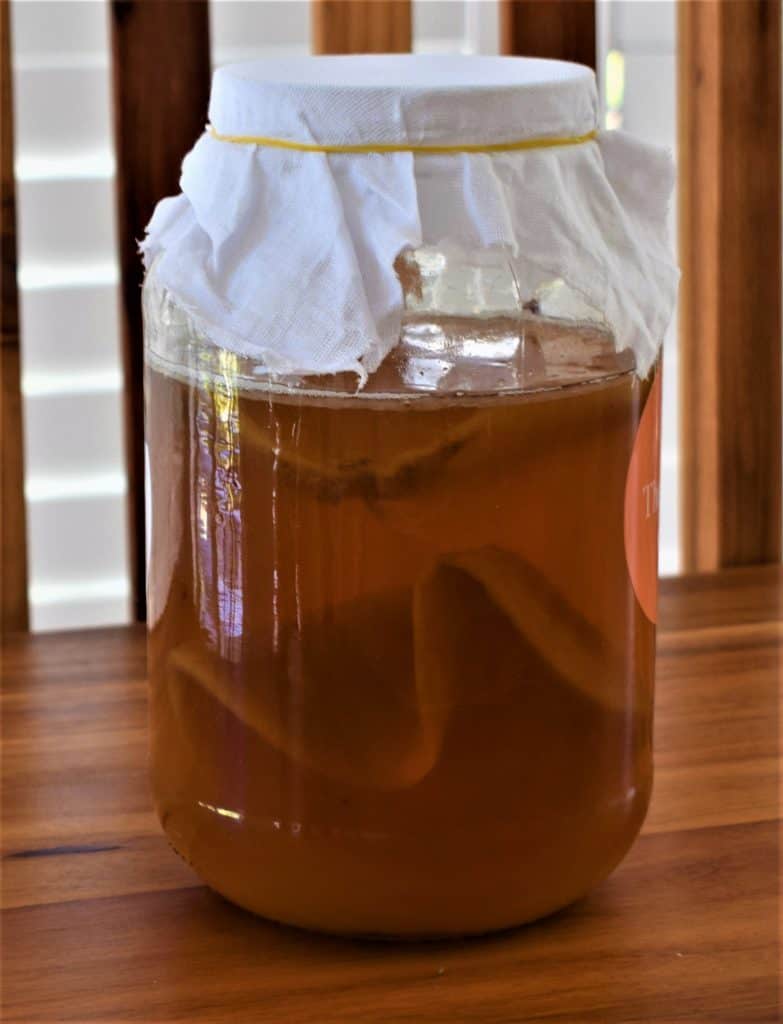In modern society, healthcare continuously improves and we are finding new ways to treat illnesses. However, we shouldn’t forget the role of mother nature and the remedies she has to offer. In this post, we will compare two very powerful remedies that have been used since ancient times: Kombucha vs Kefir. While listing pros and cons of each and then declaring the winner.
Contents
Kefir – The Lactose-free “Yoghurt”

Kefir is a natural remedy used to treat an array of different health problems. It originated in the Caucasus Mountains and it is commonly used in Tibet. Kefir grains are a symbiotic culture of bacteria and yeast. When the grains are put in water or milk it starts the fermentation process resulting in a sour, slightly alcoholic beverage. The fermentation process usually lasts 24 hours. If you leave the grains for more than one day, kefir will contain more alcohol and it will have a much stronger taste. If you want a mild taste, don’t leave the grains too long in the milk. The main bacteria found in kefir grains is Lactobacillus, which is very useful for gut microbiota.
There are two types of kefir: Milk kefir and water kefir. The first type is made by inoculating cow, sheep or goat milk with kefir grains. The second type is made by putting the grains in water. The major difference between these two types is in the number of probiotic cultures. Milk kefir is far more beneficial than water kefir since it contains 30-50 strains of yeast and bacteria compared to 10-15 strains which are found in water kefir. If you really want to get all the health benefits, you should drink milk kefir. You can make homemade kefir in various ways. For example, if you opt for milk kefir you can add berries to it and make a tasty fruit yogurt, or even ice-cream. If you decide to use water kefir, you can add fresh fruit and make a fizzy drink that is both delicious and healthy.
Kefir Health Benefits
- Cleanses the intestines
- Provides beneficial bacteria, vitamins and minerals (especially vitamins A and D)
- Boosts the immune system
- Tranquilizing effect on the nervous system and helps those suffering from sleep disorders or ADHD
- Promotes bowel movements
- Creates a healthier digestive system
- Contains both prebiotics and probiotics
- Antibacterial properties
- Has very little lactose, so even lactose intolerant individuals can safely consume kefir
However, there are also disadvantages to consider.
Kefir Negatives
- It contains a lot of sugar if flavoured
- Saturated fat (you should use low-fat milk to avoid large amounts of saturated fat)
- Side effects of probiotics (despite the benefits, some may experience bloating, gas, diarrhea)
- Interferes with certain medication (can cause blood pressure spikes in people who are taking MAOIs to treat depression)
- Potential health risk for Immunocompromised individuals (Including Auto-immune disease, HIV or cancer patients) due to bacterial content.
- The quality of the kefir depends on the quality of the milk you use. For example, I prefer raw milk, as it’s more nutrient-rich than pasteurized milk. However, raw milk is illegal in many countries. Kefir made from free-range organic milk will obviously also be a much better choice than factory-farmed kefir milk.

Kombucha – The Fermented Ice-Tea

Kombucha is a fermented drink made of black or green tea by adding sugar and specific strains of bacteria and yeast. That way it combines the benefits of both tea and bacterial and yeast cultures. The exact origin of kombucha is not known, but it is believed that it originated in Northeast China. Kombucha can be bought in stores, but it is usually brewed at home. Once you’ve brewed the tea, it is left to cool down. Next, a SCOBY (Symbiotic Culture Of Bacteria and Yeast) “mushroom” is added to start the fermentation.
Kombucha is made in a similar fashion to kefir. The only difference is the fermentation time. Whereas you can make kefir in one day, you will have to wait a lot longer to make kombucha. The fermentation time can last from 7 to 30 days. If you leave it longer, kombucha will taste more vinegary. If you want your kombucha to taste sweet, you should stop the fermentation around the 7th day. Kombucha contains different types of bacteria compared to kefir. It almost always contains Gluconacetobacter xylinus bacteria. Scientific research is limited, but there are claims that it may boost your immune system and improve digestion.
Kombucha Health Benefits
- Beneficial bacteria (probiotics which help with digestion and UTI/yeast infections in women)
- May be good for heart health (increases the good HDL cholesterol)
- Possibly good for diabetes (contains antioxidants which prevent oxidative stress)
- May reduce inflammation
- Helps maintain a healthy liver because of antioxidants
- Good for joints (it contains glucosamines which increase hyaluronic acid production; hyaluronic acid lessens free radical damage and keeps tissue structure)
- Helps with PMS
- Very low in calories
Kombucha Negatives
- Allergic reactions
- Hepatitis
- Lead poisoning (if brewed in ceramic containers). Take note that this side effect does not occur because of the bacteria itself. It is caused by improper home brewing. If you decide to drink kombucha you have to be very careful with the preparation process.
- Nausea and vomiting
- The quality of the kombucha is influenced by the quality of water used. For example, if you make kombucha with tap water, then you are exposed to all the unhealthy stuff in the tap-water. This can include chemicals like chlorine and sodium-fluoride. Thus, ensure that pristine mineral water is used for your kombucha.
Further research should be done to investigate the alleged health benefits and side effects.
The Bottom Line
Both Kombucha and Kefir have a similar effect on digestion and gut health. Kefir is slightly more beneficial for your gut flora, whereas kombucha has lower calories and can be a better option for diabetics. Although they have many pros, you should also take into account their side effects. Kefir is better researched and seems to have milder and fewer side effects compared to kombucha. They are mostly limited to stomach problems, whereas the side effects of home-brewed kombucha can be very serious, even lethal. More research should be done to substantiate kombucha health benefits. My advice is to choose kefir. You will reap all the health benefits and cut the side effect risk.
Kombucha VS Kefir – The Winner Is
Kefir. Cheers!
Full Disclosure: This “Kombucha vs Kefir” article was written with the help of an Eastern European. To provide some background info: Kefir is very popular in Eastern Europe e.g. Romania, Russia. While Kombucha is more popular in Western European countries like Germany, Netherlands, France.
What is your preference? Kombucha or Kefir? Write your own experience with these two drinks in the comment section below!
Make Your Own Kefir Or Kombucha At Home
It’s pretty easy to make your own kefir at home, using this Yogourmet Kefir Starter from I-Herb. I’ve used kefir starter packs before, and they work pretty good once you get the hang of it.
Unlike Kefir, Kombucha can be trickier to make from dried scoby. But if you don’t stand back from any challenge, try the dried kombucha starter culture from I-Herb.

Resources and Further Reading
https://www.livestrong.com/article/449940-what-are-the-benefits-of-kefir/
http://www.kefir.net/
https://www.poison.org/articles/2011-mar/kombucha-tea
https://www.healthline.com/nutrition/8-benefits-of-kombucha-tea


I have read through your interesting article and I feel that Kefir would be a better option. I had ulcerative coilitis in 2013 and will always have the inflammation to a slight degree. It is an auto immune disease.
I am currently trying to detox my system and would like to drink/eat a healthsoup for 10 days.
The soup is made from ginger,beetroot, spinach, celery and carrots. Maybe the Kefir will aid the cleansing process. One can drink an unlimited amount of this daily.
What is your view on this?
Regards,Mia
The benefit of adding kefir to your detox plan would be: Better absorption of the nutrients in your soup due to the probiotic content of the Kefir (and due to Kefir improving your digestive system health). The negative is that you’re adding to your calories count for the day. If this isn’t a problem, it should thus be a good idea to complement your health-soup with drinking Kefir.
Plus, I have found some sources on the internet that recommend consuming Kefir and raw milk to help alleviate Ulcerative Colitis e.g. https://www.youtube.com/watch?v=_-I5UdPmx_s
wonderful site thanks for sharing